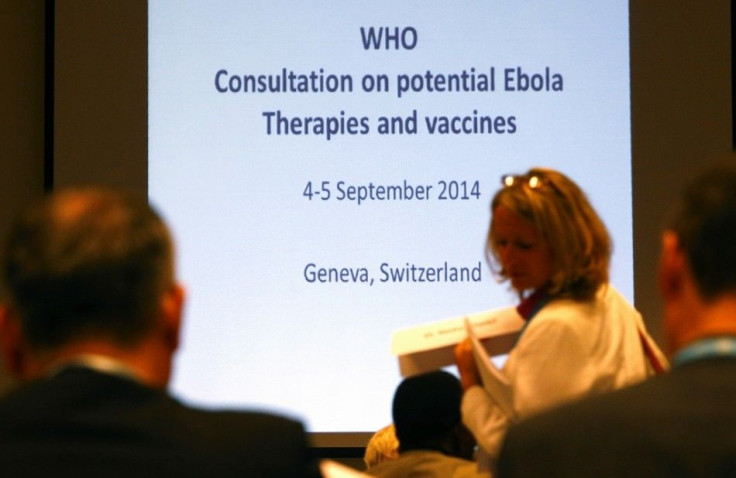WHO Races to Release Ebola Serum in 2 Weeks, Vaccines in January

The World Health Organisation is racing to release in two weeks' time a new blood serum treatment that is meant for Liberia, one of three west African nations hardest hit by the fatal Ebola virus. The global health body also said it hoped to begin in January the testing of two experimental Ebola vaccines, also in Africa.
The target recipients of the two experimental Ebola vaccines are the more than 20,000 frontline health care workers and others currently stationed in west Africa. The serum meant for Liberia, on one hand, was developed based on antibodies extracted from the blood of Ebola survivors.
Fadela Chaib, a WHO spokeswoman, said the agency hopes to vaccinate the same number of people as with those targeted in January in the months afterwards. It was not discussed if the number will continue to focus on health care workers alone. Still, Chaib stressed the vaccines, if successful, aren't enough to contain and stop the outbreak, but only to protect the people expected to be the ones caring and attending to those afflicted in west Africa. The most effective measure to bring the epidemic under control is still through isolating and treating infected people.
Parallel to the WHO's efforts, global drug manufacturers are likewise racing against time and bonding together to come up with a viable vaccine that could purge the spread of the Ebola virus.
Johnson & Johnson has already reached out to GlaxoSmithKline, obviously to work on a collaboration that could result to over a million doses in 2015. Both are working on their respective Ebola vaccines. Johnson & Johnson is in the United States, while GlaxoSmithKline is in the United Kingdom. J&J has scheduled their human clinical tests by January 2015. The vaccine has shown promise in animal testing.
The 2014 Ebola outbreak in west Africa has so far killed more than 4,500 people, with the largest numbers found in Sierra Leone, Liberia and Guinea. To date, 9,000 cases are being monitored. The WHO has cautioned the infection rate could hit 10,000 a week by early December.
Related:
Canadian Ebola Drug: Tekmira Firm Starts Limited Manufacturing of Vaccine, Available By December; Shares Up
US Dedicates 5 Airports for Travellers From Ebola-Stricken Nations, Lawmakers Want Travel Ban






